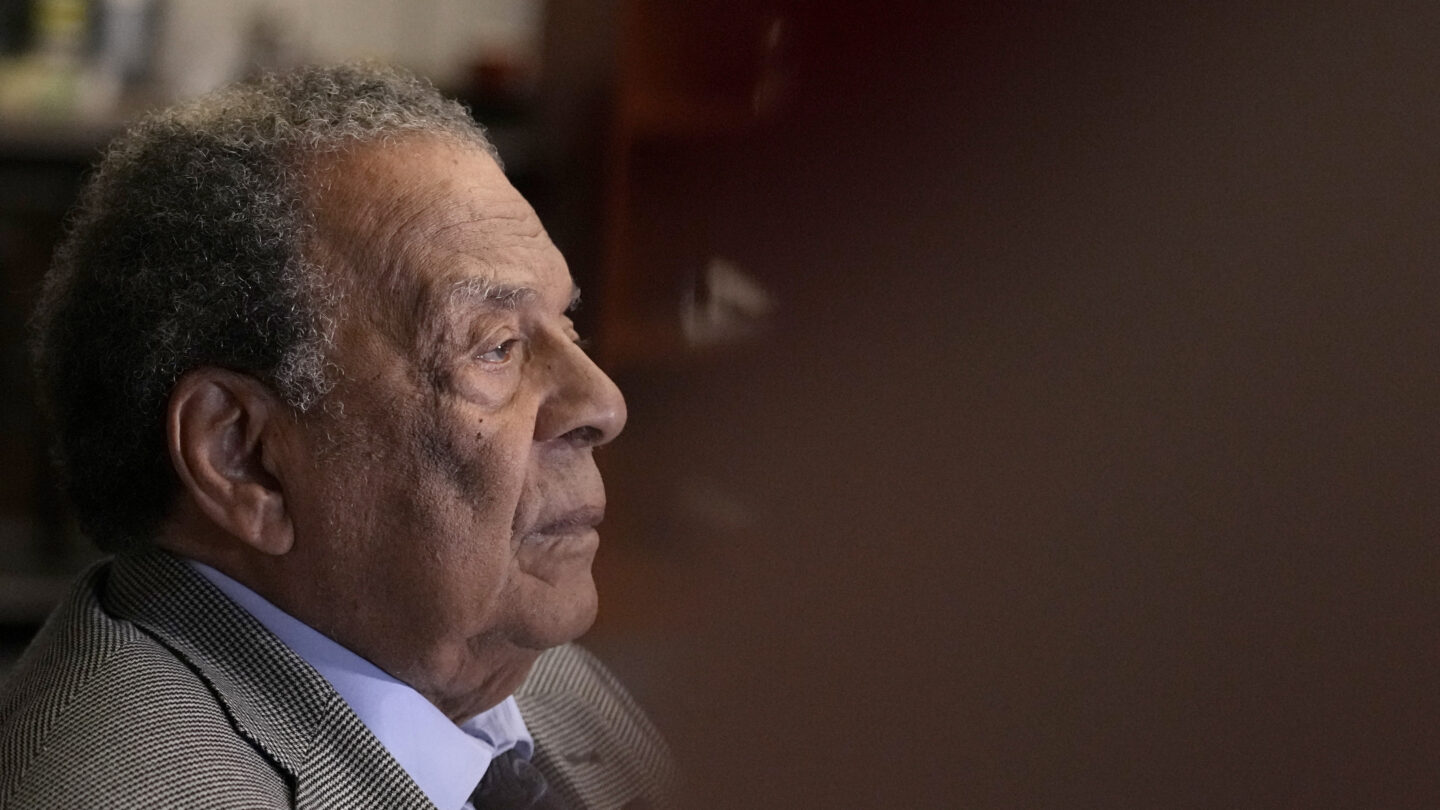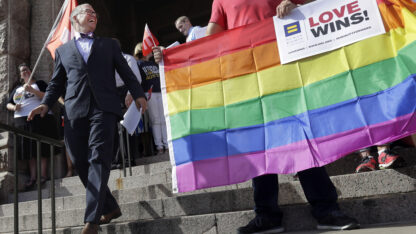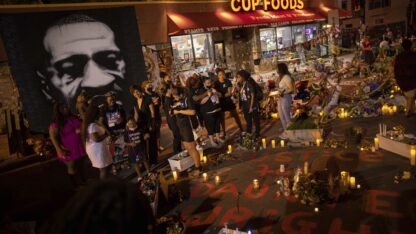Andrew Young was at Martin Luther King's side throughout often violent struggle for civil rights

Andrew Young’s first thought when he heard the Voting Rights Act had been signed into law was not celebratory. It was strategic.
“Where are we going to get the money to get the country mobilized to register these voters?” he recalled thinking at that momentous time nearly 60 years ago.
Now 91, Young is one of the last surviving members of Martin Luther King Jr.’s inner circle. The two were together from their first meeting in 1957 at a fraternity symposium at Talladega College until King was assassinated in Memphis, Tennessee, in 1968.
But while King and fellow close adviser Ralph Abernathy were at the U.S. Capitol for the 1965 signing, Young was not.
“That wasn’t my part of the movement,” he said. “I was maybe a field general.”
Young would go on to become mayor of Atlanta, a congressman and the U.S. Ambassador to the United Nations.
The journey to the Voting Rights Act was an arduous one, he recalled. In December 1964, Young and King headed to Washington to meet with President Lyndon Johnson after King had just accepted the Nobel Peace Prize. Young recalled they had to wait several hours as the president met with his advisers about what Young believes was the growing conflict in Vietnam.
When they did get in, they were met by a president who appeared weary and stressed.
“He told Dr. King, ‘I know you need voting rights. I wish I could do it, but I just don’t have the power,’” Young recalled. “Every argument Dr. King gave, President Johnson’s answer was, ‘I agree with you, but I just don’t have the power.’“
Outside the White House, Young told King the president was right and suggested this was a time to take a break from the movement he’d been leading for years. He had been jailed multiple times, stabbed, almost fatally, and his home bombed.
King kept pushing and Young responded, “You’re broke, you’re poor, you don’t have a gun or a bank account, nothing that sounds like power in this country.’ He ignored me and kept saying, ‘We’ve got to get the president some power.’”
Two days later, they received a call from Amelia Boynton Robinson, an activist in Alabama who suggested the men start a voter registration push in Selma.
That effort began in January and expanded into surrounding areas, including Perry County and Marion, the county seat. The Southern Christian Leadership Conference sent James Orange, who worked with local activists and helped organize sit-downs and student boycotts.
Orange was arrested in mid-February, ostensibly because one protest included students skipping school. Rumors circulated that he was going to be lynched.
Police violently disrupted the protest of his arrest, and a Black military veteran and church deacon, Jimmie Lee Jackson, was shot by a state trooper while trying to protect his grandfather and died days later.
Young, King, Abernathy and other civil rights leaders came to the funeral and planned to stage a march from Selma to the state capital, Montgomery. March 7 was chosen as the date, but the planners hadn’t taken into account that it happened to be the first Sunday of the month, a sacrosanct day for Black pastors, Young said.
King was preaching that day at his church, Ebenezer Baptist in Atlanta, but Young was among several hundred people gathered for the march. In a phone call to King, he described what he saw as the demonstrators approached the Edmund Pettus Bridge in Selma. King told him to let the people march.
“I had been on the other side of the bridge, and I saw the police and there were maybe 100 of them, and there were police on horseback,” Young said. “And I made the calculation that they were just going to turn us back or they would round up a few of the leaders and send everybody else back.”
That’s not how it played out.
“It wasn’t 10 seconds between the time they told them to turn around and when they started throwing tear gas bombs and charging with billy clubs,” he said. “It was a panic, and they were beating up people.”
The images galvanized people across the country, and within days Johnson called the nation to action during a speech in which he echoed the phrase that symbolized the movement: “We shall overcome.” By the end of that summer, Johnson would be signing the Voting Rights Act.
Young said voting rights have always been the vehicle for equality, and notes that progress has never happened in a straight line.
“Every time there seems to be a rise in confidence and equality and things seem to be going better, there’s some backlash that comes and sets it back,” he said.








